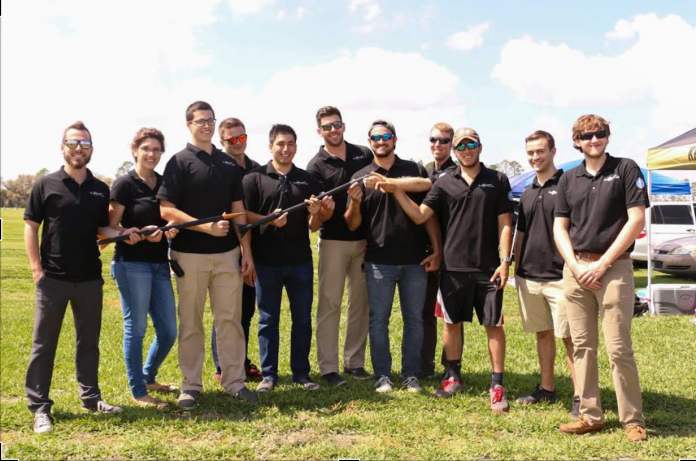By: Megan Scavo
A UCF undergraduate research group is reaching for the stars.
The group called SORCE consists of 15 active members working towards a common goal: to send a rocket into sub-orbit.
“I’ve noticed that other universities across the nation are actively working on becoming the first university to launch a student-built rocket into sub-orbit. Of course, after finding out I thought, ‘why isn’t UCF embarking on this mission?’” said Gligur Georgievski, the group’s project leader.
“We like to think of it as an undergraduate research group filled with people who believe in what we do, each supporting the project with regular contributions,” said Georgievski, a senior studying Aerospace Engineering at UCF.
SORCE is not a registered club at UCF, but instead an organized group formed by students passionate about their mission.
Georgievski said UCF has an edge over other universities, including being the number one supplier of engineers to the aerospace and defense industries. UCF produces more graduates who get jobs in aerospace and defense companies than any other university in the nation, according to Georgievski.
SORCE started their mission by competing in NASA-FSGC’s hybrid rocket competition over Spring Break in which they placed first in the max altitude category with a rocket that launched 6,400 feet. “A number the FSGC judges have never seen before,” said Georgievski.
The rocket took 6 months of designing, building, testing and optimizing for it to reach this new height.
SORCE member James Bell, a senior at UCF studying mechanical engineering, brought his adopted skills to the group after interning with NASA last summer.
“When I worked at NASA last summer, I was interning in the Logistics department which was contracted out to Jacobs Technology,” said Bell. “My main role was to help improve the efficiency of their warehouse on base and create databases so we could analyze areas of improvement.”
Bell mentioned that exposure to the different operations helped him gain a better understanding of the large workload required to prepare and launch a rocket into space. “I used this knowledge as well as the curriculum I’ve learned in school to help create the Ground Support Equipment required for our hybrid rocket,” said Bell.
With a successful launch, SORCE’s future looks promising.
“We are just a group of young engineers with a passion for pushing the boundaries and testing the limits of our capabilities,” said Bell.




